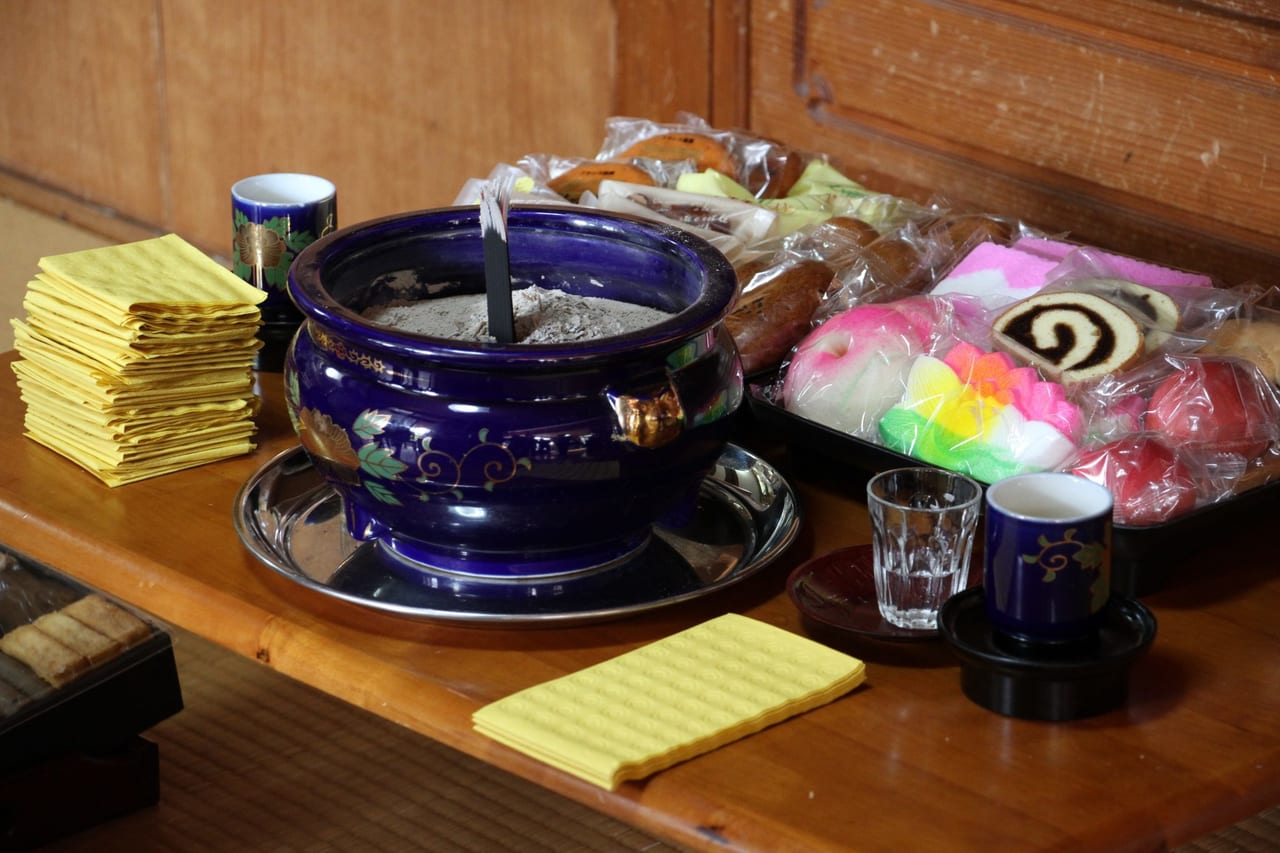
Kyu-Bon Festival in Okinawa Feel the culture of “Unkeh Ukui”
What is Kyu-Bon in Okinawa?
Obon Festival is an annual summer event that is held not only in Okinawa but throughout Japan, to commemorate one’s ancestors. Obon is a unique Japanese custom to welcome the spirits of ancestors and holding a memorial service. Obon is referred as “Kyu-Bon” in Okinawa and celebrated for three days according to the lunar calendar from 13-15th of July Source: The Ryukyu Shimpo
Source: The Ryukyu Shimpo
What do they do for Kyu-Bon?
“Unkeh” is the first day of the festival, where family members will set a bonfire and welcome their ancestors to the butsudan (family alter). On this day, family members will eat Okinawan style seasoned rice dish called “jushi”. The reason for cooking this rice dish is because they have been told that “Even if you lose your loved one and feeling grieved, never forget your gratitude. Treat everyone by cooking the rice dish.”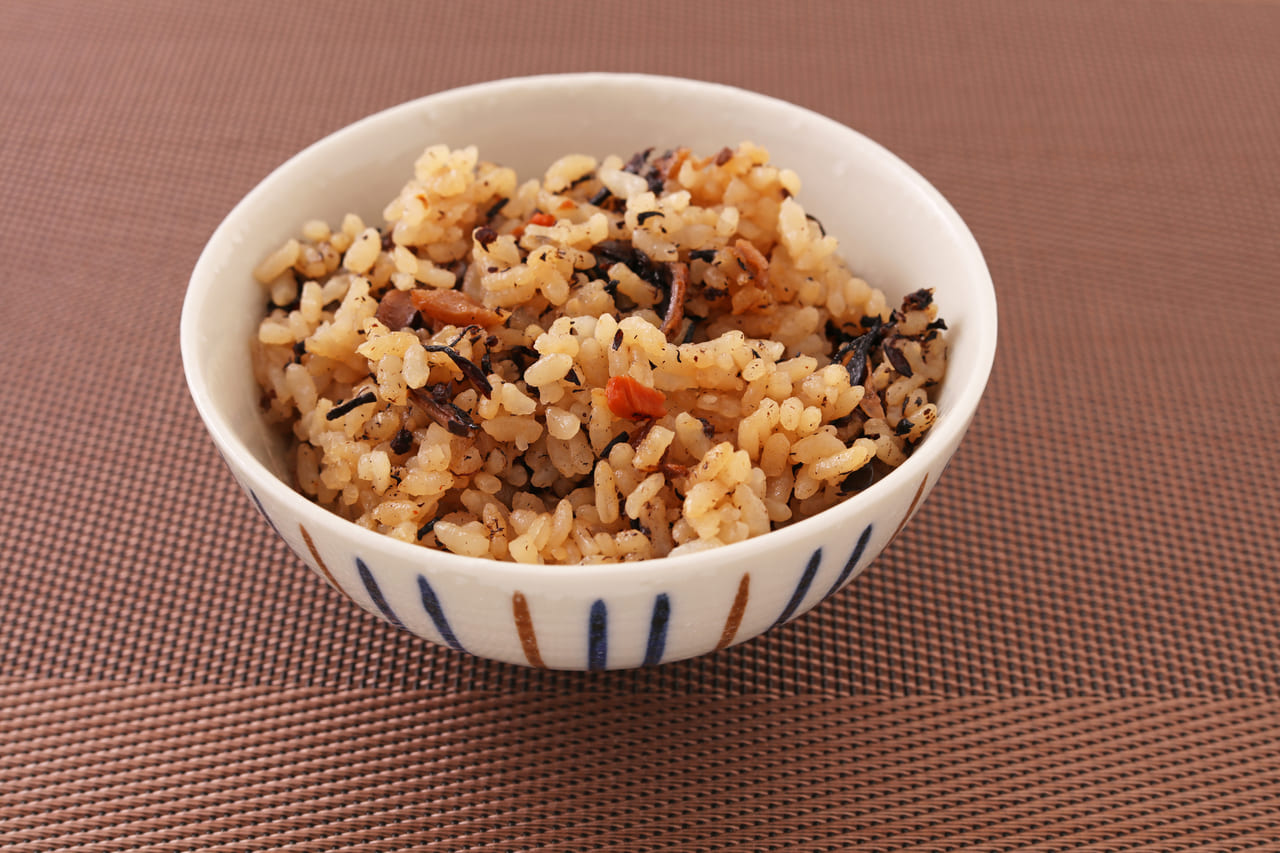
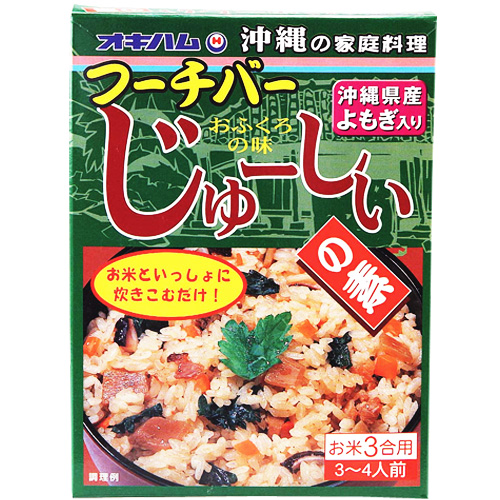
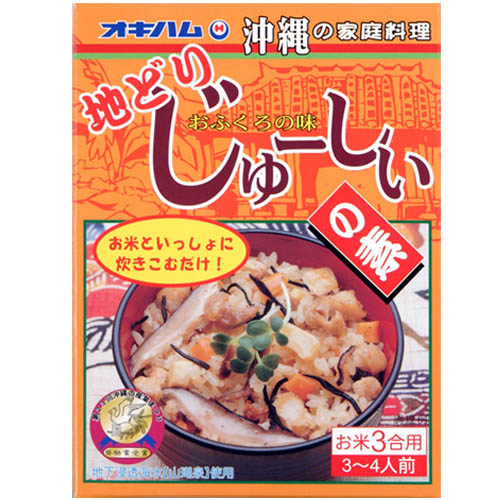
*Various flavors are available and recommended for souvenirs too!
On the second day “Nakanuhi”, three meals are offered on the butsudan alter and all family relatives will eat the same meal and spend time with the spirits of ancestors. On this day, local people pay respects to their ancestors by visiting other relatives’ homes and pray at the family alters. Also, visiting families must have a meal at every visiting home so it is quite hard work.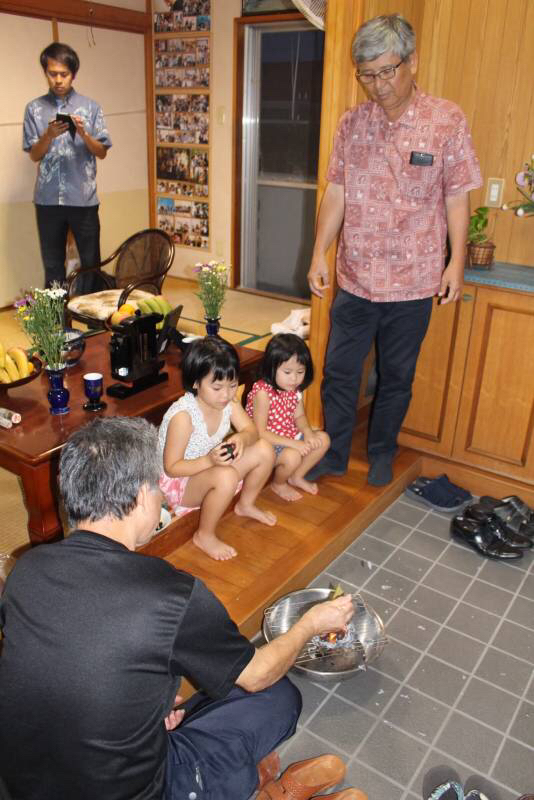
A special section in the supermarkets that is unique to Okinawa
During the season of Kyu-Bon, AEON and MaxValu stores in Okinawa will set up a special sales section to prepare for the festival. There are many items that you won’t get to see in other regions of Japan, and each has a meaning.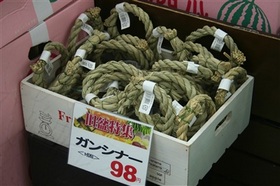
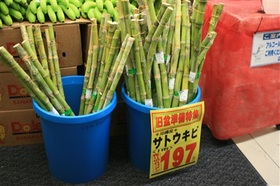
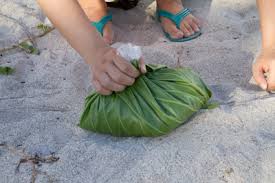
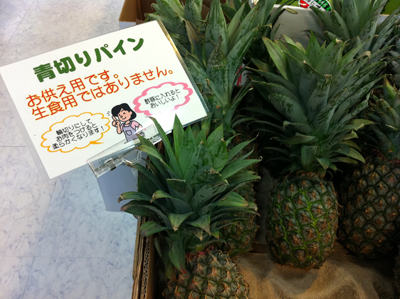
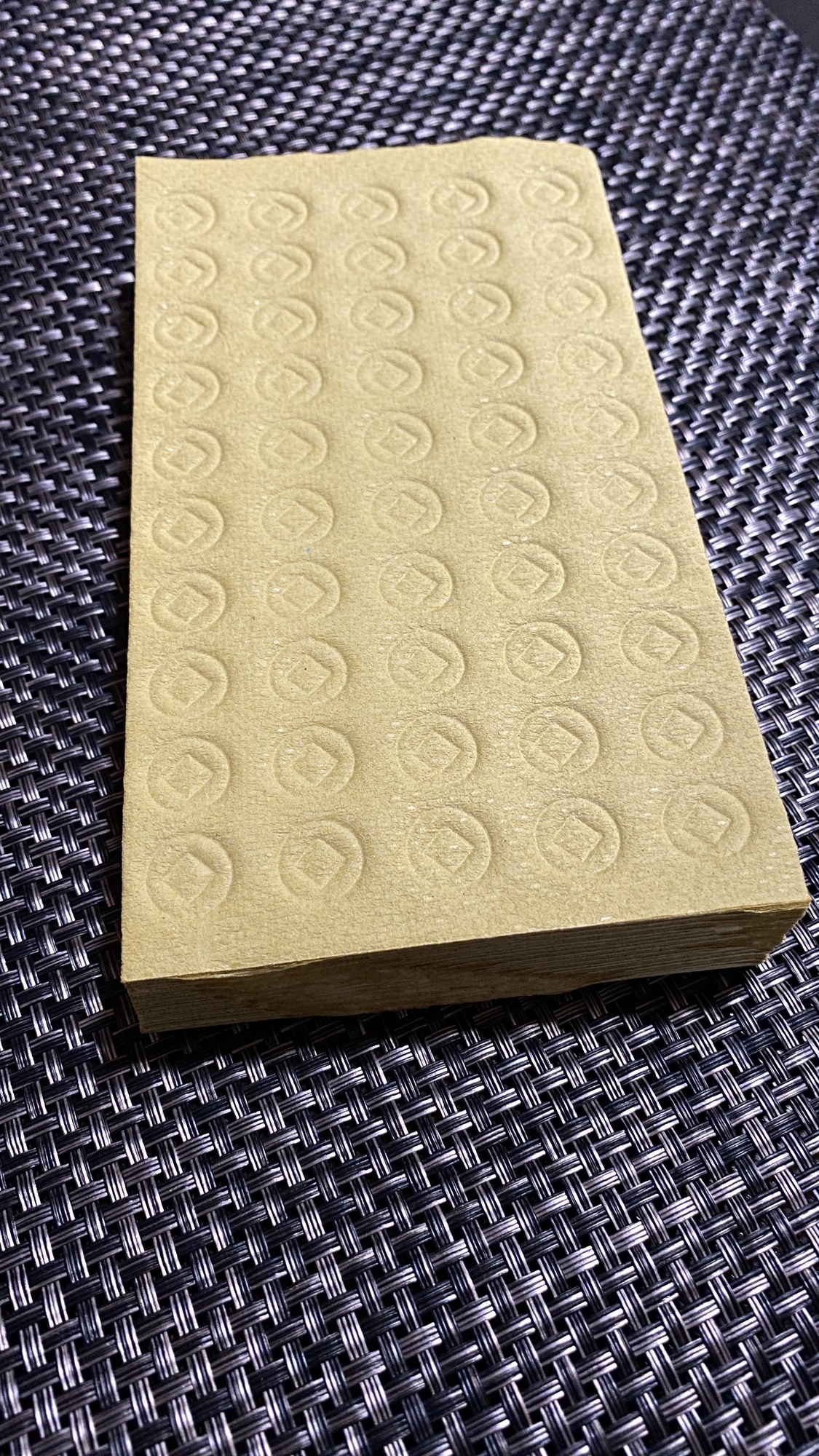
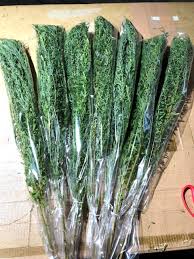
Okinawan Kyu-Bon Cuisine—Usanmi
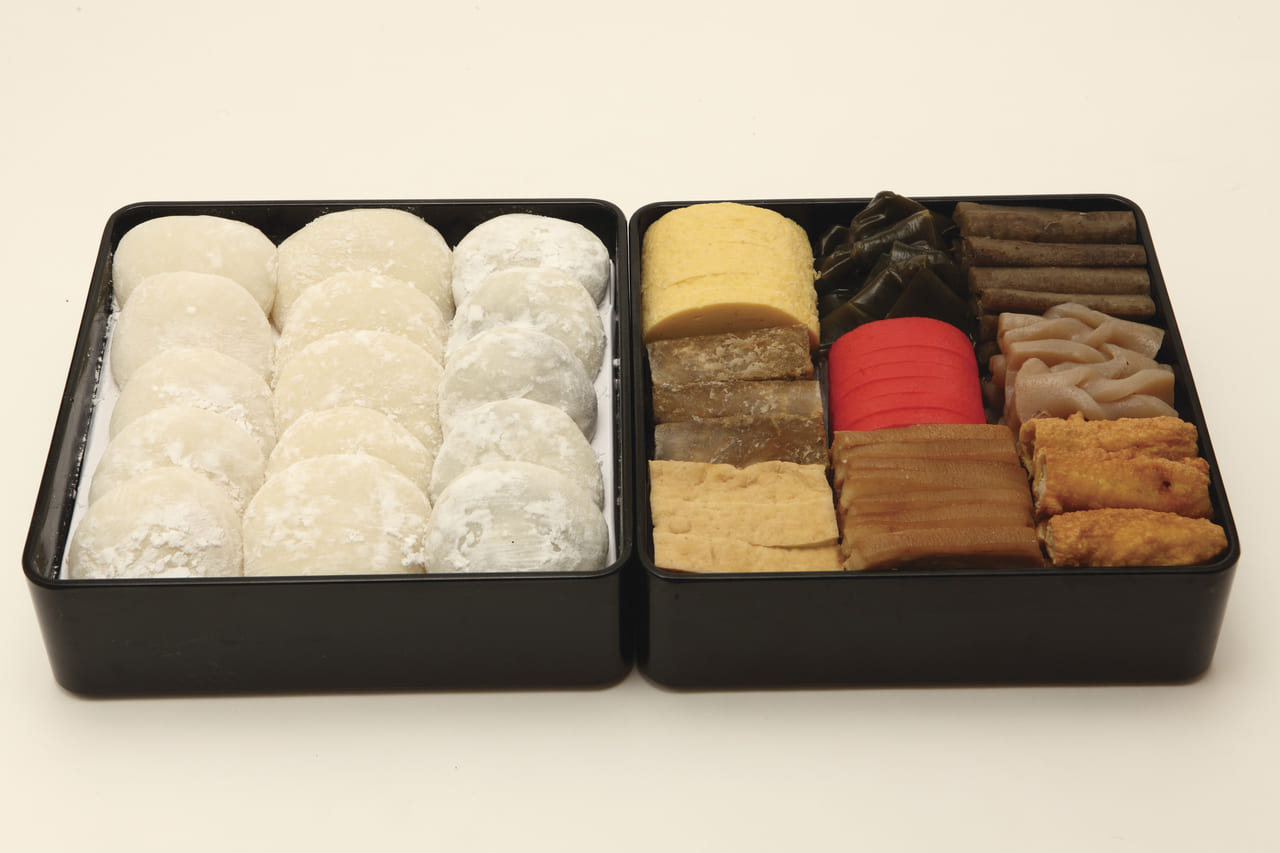 © OCVB
“Usanmi”, meaning “Three kinds of feasts”, is a type of offering that originated in China, which is dedicated to the gods. The dishes are made of ingredients from “the sky, the earth and the sea” and are packed in square boxes. It normally contains nine dishes: savory-sweet fish cake, red-white fish cake, fried tofu, tempura, fried taro, kelp, burdock root, konnyaku and pork.
In Okinawa, Kyu-Bon is considered as a “celebration” rather than a “memorial service” so the contents of usanmi offering is a little different. For example, “red” is a lucky color so the fish cake is in red, and the kelp is in a knot because it has the meaning of “tying the knot”.
© OCVB
“Usanmi”, meaning “Three kinds of feasts”, is a type of offering that originated in China, which is dedicated to the gods. The dishes are made of ingredients from “the sky, the earth and the sea” and are packed in square boxes. It normally contains nine dishes: savory-sweet fish cake, red-white fish cake, fried tofu, tempura, fried taro, kelp, burdock root, konnyaku and pork.
In Okinawa, Kyu-Bon is considered as a “celebration” rather than a “memorial service” so the contents of usanmi offering is a little different. For example, “red” is a lucky color so the fish cake is in red, and the kelp is in a knot because it has the meaning of “tying the knot”.
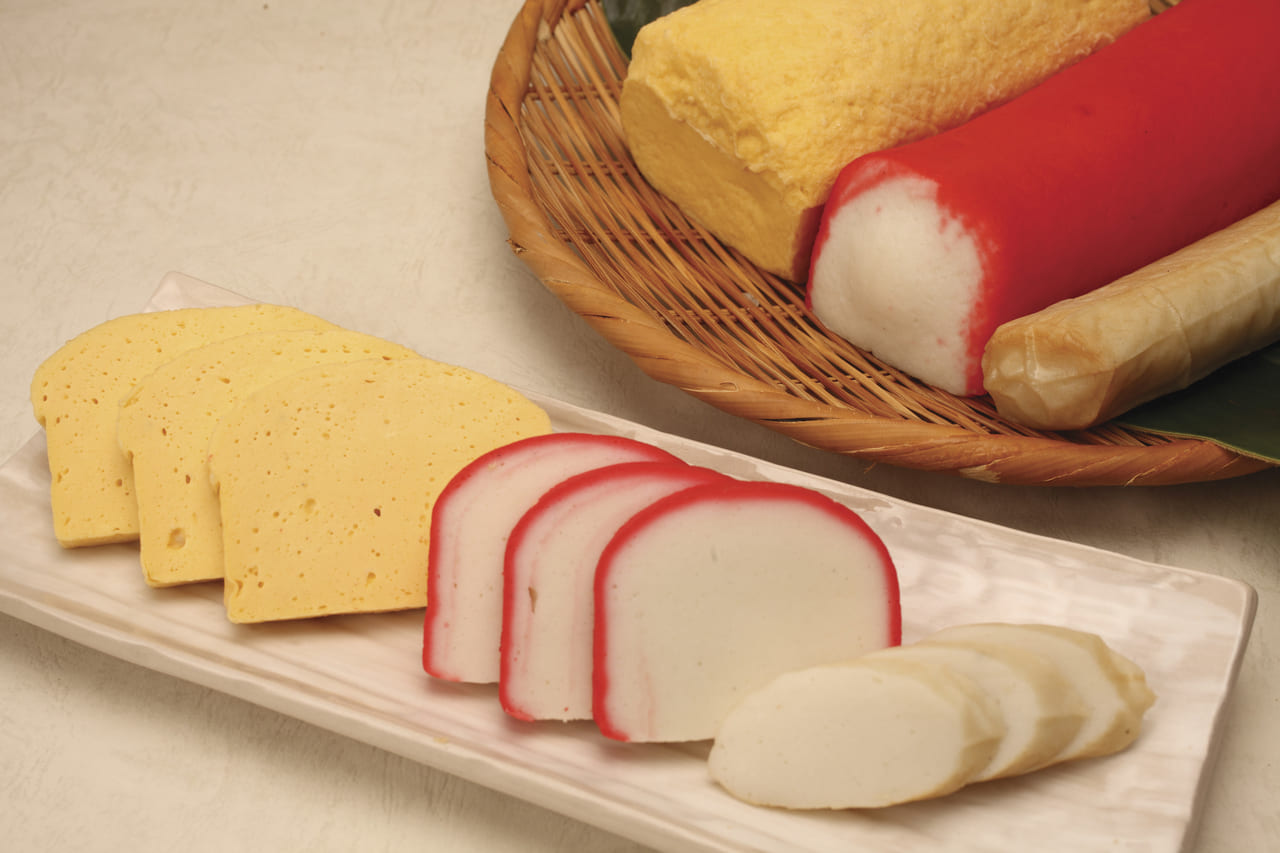 © OCVB
Usanmi (one box filled with white mochi, another box filled with dishes) is normally prepared and offered on the butsudan alter, and another same set is served in the living room for the family members to eat the same offering as the ancestors.
In Japanese expression, “To eat from the same rice bowl” has a similar meaning to an English saying, “To drink of the same cup.” It is an expression to indicate a strong bond continuing between families even after ancestors’ passing away.
If you happen to visit Okinawa during the “Unkeh Ukui” season, you can try usanmi cuisine from Okinawa’s AEON or MaxValu stores with your family or loved ones.
© OCVB
Usanmi (one box filled with white mochi, another box filled with dishes) is normally prepared and offered on the butsudan alter, and another same set is served in the living room for the family members to eat the same offering as the ancestors.
In Japanese expression, “To eat from the same rice bowl” has a similar meaning to an English saying, “To drink of the same cup.” It is an expression to indicate a strong bond continuing between families even after ancestors’ passing away.
If you happen to visit Okinawa during the “Unkeh Ukui” season, you can try usanmi cuisine from Okinawa’s AEON or MaxValu stores with your family or loved ones.
